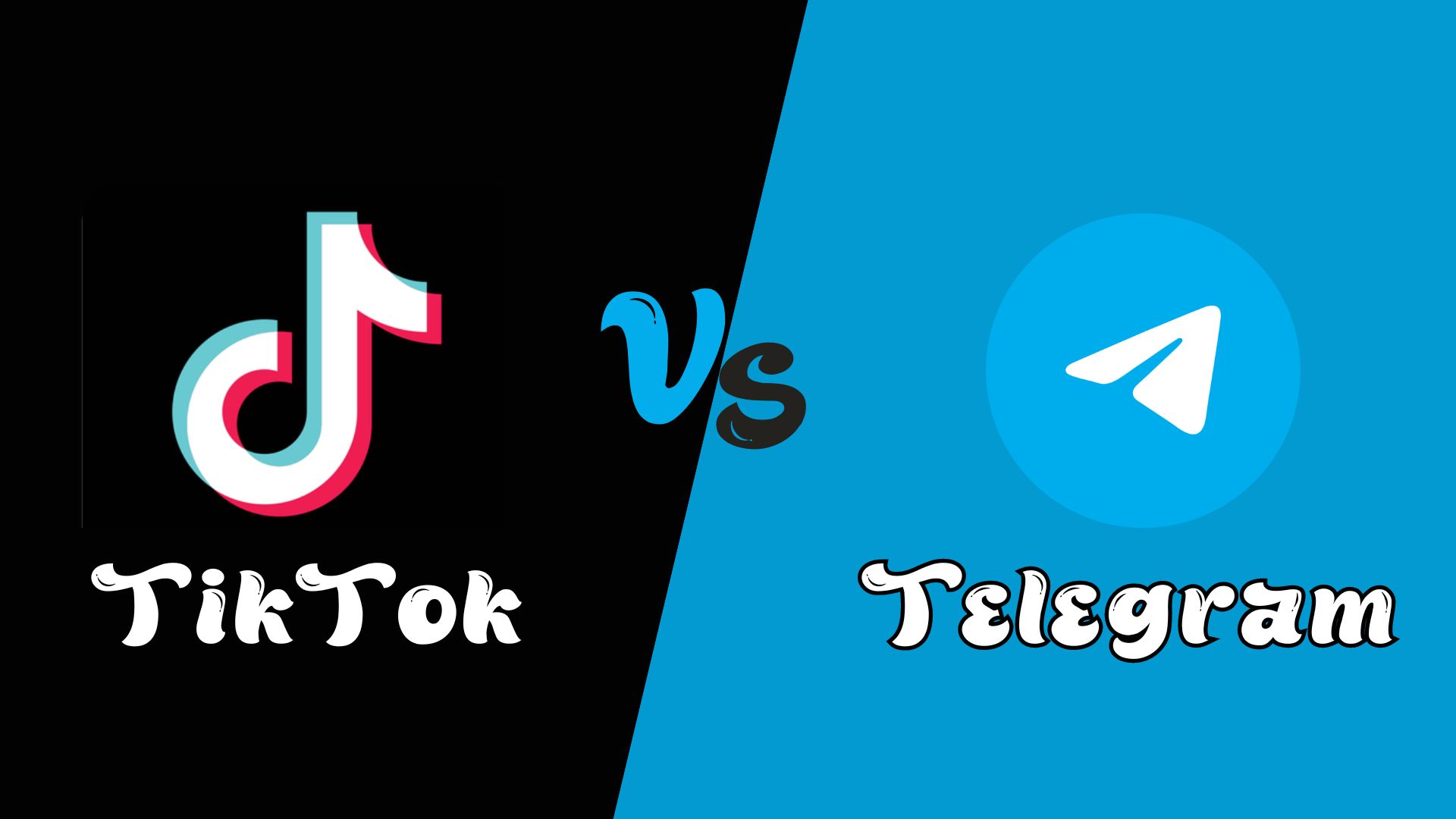In the digital era, where social media platforms reign supreme, TikTok vs Telegram stand out as two giants in their respective domains. TikTok, known for its short-form video content, has captured the attention of millions worldwide, while Telegram, a messaging app, boasts a robust set of features for communication and community building. In this article, we’ll delve into the unique attributes of both platforms, comparing their strengths, weaknesses, and their impact on users and society.
Understanding TikTok
TikTok burst onto the scene in 2016, captivating audiences with its addictive format of short videos set to music. The platform quickly gained traction, especially among younger demographics, with its algorithm-driven content discovery and seamless user experience. TikTok’s appeal lies in its ability to turn ordinary moments into engaging content, fostering creativity and self-expression among its users.
Features and Functionality
TikTok offers a plethora of features, including video editing tools, filters, and effects, enabling users to produce high-quality content with ease. The platform’s algorithm analyzes user preferences to curate a personalized feed, keeping users hooked with a constant stream of entertaining videos. Additionally, TikTok’s duet and reaction features encourage collaboration and interaction among creators, fostering a sense of community within the platform.
Impact on Society
While TikTok has revolutionized the way we consume and create content, it has also sparked debates surrounding privacy, addiction, and misinformation. Concerns have been raised regarding the platform’s data collection practices and its potential to expose users, particularly minors, to harmful content. Moreover, the addictive nature of TikTok has led to criticism of excessive screen time and its impact on mental health.
Exploring Telegram
Telegram, founded in 2013, offers a unique take on messaging platforms, prioritizing privacy, security, and customization. Unlike traditional messaging apps, Telegram boasts features such as secret chats, self-destructing messages, and extensive group capabilities, making it a favorite among users seeking enhanced privacy and control over their communications.
Features and Functionality
Telegram’s feature set is designed to cater to a diverse range of user needs, from private conversations to large-scale communities. The platform’s robust encryption protocols ensure end-to-end security, protecting user data from prying eyes. Moreover, Telegram’s channels and groups facilitate seamless communication and collaboration, enabling users to share ideas, interests, and resources with like-minded individuals.
Impact on Society
Telegram’s commitment to privacy and security has earned it praise from users concerned about data privacy and surveillance. However, its encryption features have also drawn criticism from law enforcement agencies, who argue that they hinder efforts to combat illegal activities such as terrorism and organized crime. Additionally, Telegram has faced scrutiny for its role in facilitating the spread of misinformation and extremist content on its platform.
A Clash of Titans
While TikTok and Telegram operate in different spheres, they share a common goal of connecting people and fostering communities online. However, their approaches to achieving this goal couldn’t be more different. TikTok prioritizes entertainment and creativity, leveraging user-generated content to keep audiences engaged and entertained. In contrast, Telegram focuses on privacy and security, providing users with tools to protect their communications from external interference.
Competition and Cooperation
Despite their differences, TikTok and Telegram have found themselves competing for users’ attention in an increasingly crowded digital landscape. TikTok’s rapid growth and global reach have made it a formidable rival to established social media platforms, including Facebook and Instagram. Meanwhile, Telegram’s emphasis on privacy and security has attracted users disillusioned with mainstream messaging apps, such as WhatsApp.
The Future of Social Media
As technology continues to evolve, so too will the platforms that dominate our online interactions. TikTok vs Telegram represent two distinct visions of the future of social media, one driven by entertainment and engagement, the other by privacy and security. Whether these platforms will coexist peacefully or continue to clash remains to be seen, but one thing is certain: the battle for supremacy in the digital realm is far from over.
See Also – TikTok vs Snapchat
Conclusion
In the age of social media, platforms like TikTok vs Telegram play a central role in shaping how we connect, communicate, and express ourselves online. While each platform has its strengths and weaknesses, they both reflect the evolving needs and desires of users in an increasingly interconnected world. Whether you’re drawn to TikTok’s infectious creativity or Telegram’s unwavering commitment to privacy, one thing is clear: the power of social media to unite and divide us is greater than ever before.

